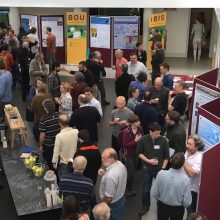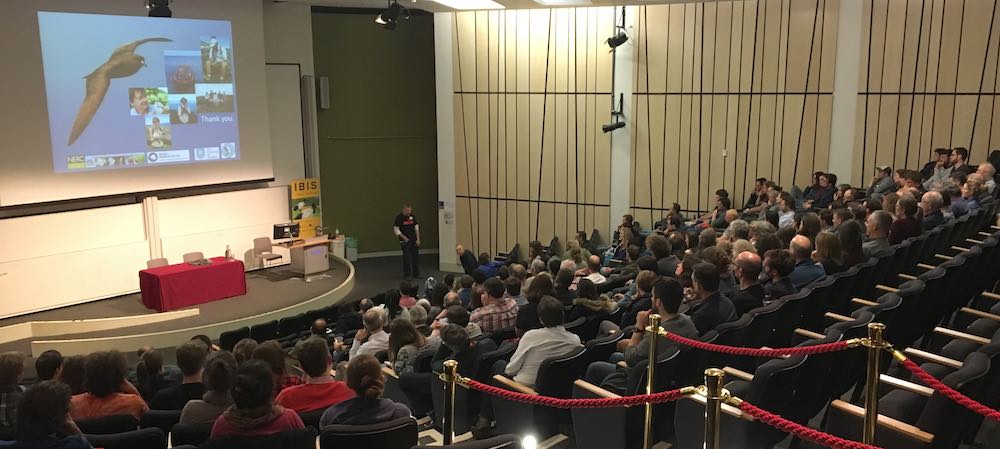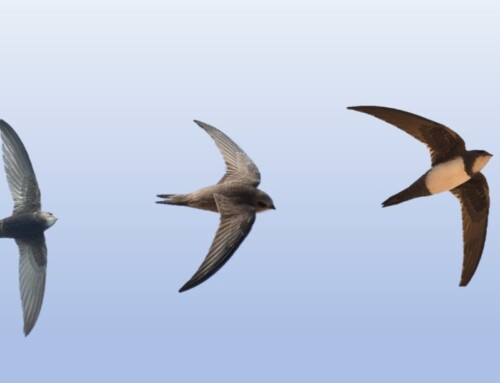
Meetings to plan meetings: why BOU conferences matter
On the face of it, who in their right mind would want to attend meetings in order to plan more meetings, let alone chair them? But the truth is – being a member of BOUMC is probably one of the best and most rewarding jobs in the BOU, as it is here that members get to make plans for the benefit of the wider ornithological community through our conferences.
Somewhat uniquely the BOU themes all of our conferences. This lends itself to focused and intense events attracting an audience of researches all interested in the same subject. It’s like one big symposium! And you’ll be surprised how many themes overlap which sees many attendees come to most of our annual meetings regardless of the theme.
Another USP of our conferences is that we always try to mesh advances in ornithological science with policy relevance. This is reflected by the diverse backgrounds of people who make up the Committee and it’s a real pleasure to be around different folk working in academia, research institutes, government agencies and NGOs, all with a shared passion for ornithology.
Planning for a conference starts a couple of years in advance and it’s during our BOUMC meetings that we have lots of lively discussion about new and emerging hot topics, what sort of conference our members want, or whether it is time to re-visit a conference theme run several years earlier, now that the science has progressed. Coffee is drunk, biscuits are munched and heads are scratched, as the Committee dissects topics under consideration. And boy this is hard! Some topics naturally lend themselves to a conference, some don’t, and we sometimes have to turn down proposals because we just don’t think we’ll attract a large enough audience.
In addition to our annual conference, the BOU also runs one-day meetings (recent themes have included invasive species, food-webs, marine renewables, avian diseases) and also assists with and/or contributes to other conferences within Europe (such as European Ornithologists’ Union conferences – we were one of the hosts and organisers of EOU2013) and across the globe, e.g. we’re running our own one-day open meeting at the International Ornithological Congress, Vancouver, Canada, 19 – 26 August 2018.

The success of our conferences is entirely due to the goodwill and hard work put in by our conference organising teams (mostly people with no formal role in the BOU), with tremendous support from our excellent BOU staff. We are really lucky to have some of the best people in ornithology leading and organising these conferences, taking time out of their busy schedules on an entirely voluntary basis. Everyone seems to be driven by a united passion for birds, science and building the ornithological community – and it is really energising.
Since becoming Chair of the Meetings Committee the one thing that has impressed me the most is the united belief across the BOU that to ensure the future of ornithology we must invest in the next generation of scientists – our early-career researchers (ECRs). Much of our discussions are around questions such as: “how many ECRs can we subsidise?”; “what events would be of most use to ECRs?”; “can we build on the ECR feedback from the previous conference?” and “do we need to make more time for the bar?” We know that there are an infinite number of conferences for people to consider attending, but what appears to make BOU conferences unique and successful is our focus on building community and an environment where people don’t feel anonymous. It’s not just the conference theme that is important to us, it’s the events and opportunities we can deliver for our ECRs. That is why we appear to be obsessed with supporting postgraduate students and those starting off in their ornithological careers. We are always on the lookout for new ideas, technological advances and ways of making the conferences more dynamic and interesting, and many of these are being delivered by ECRs .
We know that few people like completing feedback forms, but we do use them to evaluate our conferences and honestly do read and scrutinise the data and comments we receive. We know we must be doing something right when we receive comments such as “the BOU annual conference is a must for early career ornithologists. It’s friendly, welcoming and offers so much for people starting out in their career” and “awesome BOU conference as always, old and new faces, old and new research – fantastic.”
My own students say how much they love going to the annual BOU conference for its friendly atmosphere, great talks, networking and opportunities to meet up with friends made in previous years. Although there is always room for improvement there is also room for good ideas, suggestions, and offers of help. Our plan is to grow our conferences and events and to ensure this major part of the BOU’s work is taken forward by the next generation of ornithologists.

Our 2018 annual conference is ‘titled
21st century ornithology: challenges, opportunities and decisions (#BOU2018,
27-29 March 2018) and is being organised by Bill Sutherland (University of Cambridge), Helen Baker (Joint Nature Conservation Committee), Aldina Franco (University of East Anglia) and myself. Why not make a resolution to come and be part of our community?
And there’s more . . .
In coming weeks we’ll be posting blog posts explaining more about what we do and why we do it. In the meantime, read more about some of our community, about why they are BOU members and why and how they help us deliver our many activities.
More about the BOU
The BOU’s global ornithology community
What does it take to run the #1 ornithology journal?
The BOU – a personal perspective from the US
Funding ornithology – the work of the BOU Grants Committee
Listing into the future
BOU – we’re better when we’re together
Developing early-career researchers
Meet some of our members and those who help run the BOU
Blog with #theBOUblog
If you want to write about your research in #theBOUblog, then please see here.





